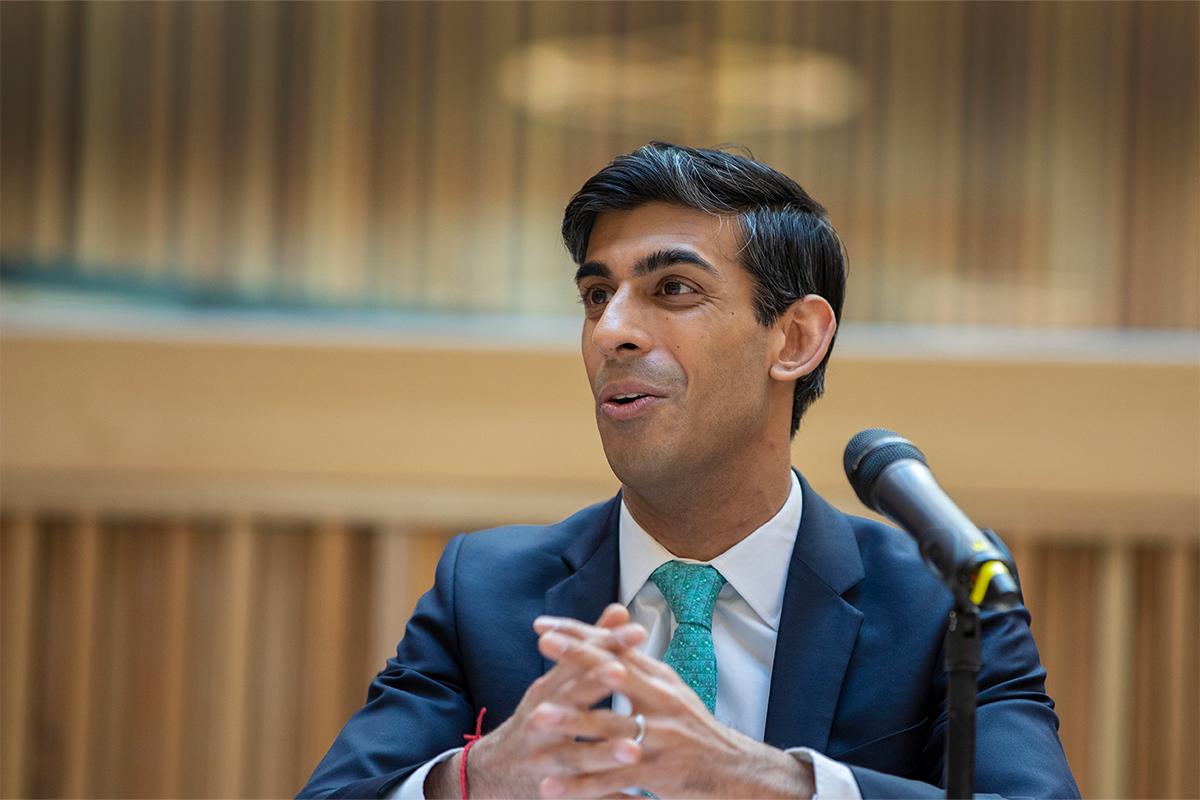
On 7 April 2024 the Sunday Times reported that Prime Minister Rishi Sunak is considering giving even more power to state-funded faith schools following lobbying from Catholic leaders and supportive Conservative MPs. This has reignited the debate about the ability of state-funded faith schools to discriminate against locally based children not of the ‘right faith’. Humanists UK, who successfully campaigned against similar plans in 2018, have responded to the story with alarm.
Lewis Young, the Education Campaigns Manager at Humanists UK, recaps the history of the issue below.
What is this all about? What’s the 50% cap?
The existence of a so-called ‘50% cap’ on new religious free schools reflects the fact known across Whitehall, in Government, and by all the major players and think tanks in education that when you allow religious selection in state schools, things like racial segregation, economic (or class-based) segregation, and disadvantaging of disabled and care-experienced children always come along for the ride, too.
A ‘50% cap’ was brought in to mitigate these effects while compromising with the providers of state-funded religious schools who wanted to be able to advantage their own flocks, or otherwise encourage local parents to attend church.
‘It’s a fact known across Whitehall that when you allow religious selection in state schools, things like racial segregation, economic segregation, and disadvantaging of disabled and care-experienced children come along for the ride, too.’
It’s also worth stating however that while popularly called a ‘cap’, the 50% rule actually isn’t a cap. It doesn’t prevent religious schools from admitting children of the faith of school beyond the first 50%. It simply means that, after the first 50% of places have been reserved, they would no longer be able to automatically give preference to one of the two candidates for the same place in the school.
Does the cap work?
Yes. Analysis carried out by Humanists UK in 2016 found that ethnic integration in schools improved significantly as a result of the cap. In ‘other Christian’ free schools subject to the cap, nearly a fifth of pupils (19%) were Asian, compared to 3% at fully religiously selective ‘other Christian’ schools. A similar picture was seen in Church of England free schools subject to the cap, with 15% of the pupils at these schools from Asian backgrounds, compared to just 6% at fully religiously selective Church of England schools.
It’s undeniable that a complete end to religious segregation in schools would be preferable – the 50% cap was always a compromise to begin with. It’s also worth remembering that in practically every other Western democracy, religious discrimination in state school admissions is not just illegal, but unthinkable. Other than the UK, only three other OECD countries let state schools select on the basis of religion. They are Estonia (an atheist majority country where 5% of school places are reserved for a religious minority), Israel (a Jewish state), and Ireland (where the government has started phasing it out).
How long has the cap been around? Who introduced it?
A limit on religious selection at new Academy schools that did not replace a pre-existing state-funded school was introduced in 2007 by the Labour Government.
The cap was deliberately kept in place by the Conservative-Liberal Democrat Coalition in 2010 as part of their Free Schools Programme, and meant that all new and existing religious free schools must continue to keep at least half of their places open to all children, regardless of their religious or non-religious backgrounds.
What’s the history since then?
Catholic lobbying on this issue intensified towards the end of the Coalition Government in 2015. Despite vocal opposition from the Catholic Education Service, who made misleading claims about the policy being against ‘Church Law’. and the Catholic Bishops Conference of England and Wales who declared a boycott against the Free Schools Programme, the policy to restrict religious selection in new state-funded faith schools remained in place after the 2015 general election.
It was only when Theresa May became Prime Minister in 2016 that the cap came under threat on the grounds that it hadn’t boosted integration. This claim was later retracted on orders of the UK Statistics Authority following intervention from Humanists UK who carried out research proving the exact opposite.
In January 2018 Theresa May replaced Education Secretary Justine Greening, who was understood to be privately opposed to Theresa May’s plan, with Damian Hinds who had previously sponsored a debate in favour. Humanists UK co-organised an open letter of over 70 public figures including the former Archbishop of Canterbury Dr Rowan Williams and called on the Education Secretary to keep the limit in place.
‘After 20 months of campaigning by Humanists UK, the Government eventually announced a u-turn and that new state-funded faith schools would be restricted in how many children of “their faith” they could admit.’
As a concession to religious lobbyists the Education Secretary announced that new funding would be available for religious groups to open fully selective faith schools outside of its free schools scheme.
Even with restrictions in place recent studies have shown that faith schools continue to be less inclusive than schools without a religious character, in terms of disadvantaged children, children in care, and those with additional learning needs. Following evidence from Humanists UK, the United Nations Committee on the Rights of the Child criticised the UK Government for permitting faith-based discrimination in school admissions. Humanists UK are once again calling on the government to commit to its restriction on faith-based selection for schools at a minimum.
Who opposes lifting the cap?
In 2018, lifting the cap was vigorously opposed by the major trade unions, the Institute for Community Cohesion, British Muslims for Secular Democracy, the Children’s Rights Alliance for England, the Liberal Democrats, the Labour Party, the Green Party, and Ekklesia, along with secularist groups like Humanists UK and senior religious leaders like the former Archbishop of Canterbury, Rowan Williams.
In polling at the time, most British Catholics (67% in YouGov polls) and 81% of British Christians opposed lifting the cap, too.
Do international Catholic schools have this problem?
Since 2015, the Catholic Education Service has argued that non-discrimination requirements in schools contravene ‘canon law’, but in truth it is only Catholic bishops in England and Wales who take this interpretation of canon law. They also do not apply this ‘canon law’ requirement to Catholic private schools, nor to state schools in areas like Peterborough where they self-imposed a 50% cap on their admissions. (This was volunteered by the local diocese to convince the local council to approve a new Catholic school in spite of overwhelming local preference for a non-selective community school.)
In the Republic of Ireland, for example, the Catholic Church welcomed a decision in 2018 to abolish the ‘baptism barrier’ in its schools – this creates a ‘zero percent cap’.
In fact, the International Catholic Office of Education’s advice to its schools in Europe is that religious selection in admissions is wrong and that Catholic schools should be open to the whole community. The ‘canon law’ argument doesn’t hold water – it is merely a lobbying tactic.
‘There is in fact no such canon. It’s the subtlety and openness of canon law on this matter which allows the Catholic Church across the world to operate in a wide variety of educational and legal situations with maximum flexibility.’
In truth, besides the bishops of England and Wales as represented by the Catholic Education Service, no one in education supports removing the cap, because it is an unjustifiable policy that won’t achieve any positive outcomes, but which will directly reduce access to local schools for poorer families, ethnic minorities, disabled children, and children who have previously been in care.
I’m concerned. What can I do?
Humanists UK has put together a petition so you can add your name to our appeal to Rishi Sunak to abandon this dire anti-equality, anti-cohesion policy.
Humanists UK is also urging supporters to donate to its ongoing appeal to fully fund its full-time campaigner on faith schools. As well as working vigorously to oppose lifting the cap, Humanists UK’s Education Campaigns Manager is responsible for countless parents each week supporting parents affected by faith school admissions, evangelism in schools, and forced worship. They work year-round to collate the facts and figures about faith schools to build political consensus for a fairer education, free from religious discrimination, a slanted curriculum, or a religiously biassed school ethos. Please, donate today to help us work to end faith schools and make every school in this country an inclusive one, where children of all backgrounds can learn and play together.
Notes
For further comment or information, media should contact Humanists UK Director of Public Affairs and Policy Kathy Riddick at press@humanists.uk or phone 07534 248 596.
Read more about our work on faith schools.
Read the latest Office of Schools Adjudicator report on faith schools’ admissions policies ‘effectively disadvantaging’ looked after and previously looked after children.
Humanists UK is the national charity working on behalf of non-religious people. Powered by over 120,000 members and supporters, we advance free thinking and promote humanism to create a tolerant society where rational thinking and kindness prevail. We provide ceremonies, pastoral care, education, and support services benefitting over a million people every year and our campaigns advance humanist thinking on ethical issues, human rights, and equal treatment for all.



